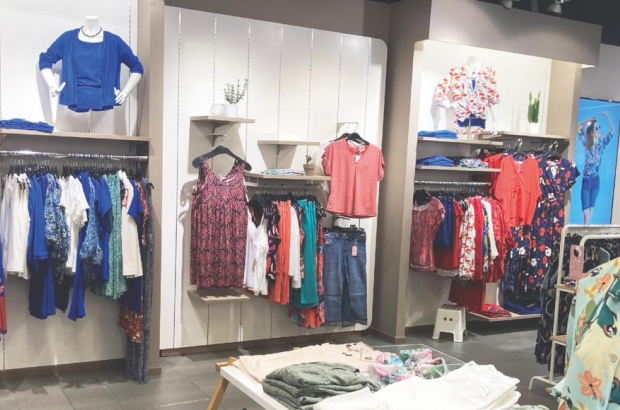- Daily & Weekly newsletters
- Buy & download The Bulletin
- Comment on our articles
Cassis clothing chain to close nine stores, 67 jobs at risk
Nine shops in the Cassis-Paprika group are closing their doors for good, trade union CGSLB reported in a statement, resulting in 67 people – most of them women – losing their jobs.
The Cassis shops affected are those in Tournai, La Louvière, Wavre, Kuurne, Sint-Niklaas, Wijnegem, Belle-Île (Liège), Anspach (Brussels) and Basilix (Brussels).
The bankruptcy was announced by the group's management at an extraordinary works council meeting.
The Cassis Paprika Group’s recovery plan was approved by the Walloon Brabant business court in Nivelles.
“This strategic plan will safeguard more than 600 jobs and ensure the long-term future of the business,” the company said.
“The group will now operate under a single banner in order to overcome the economic challenges of the ready-to-wear sector, and will focus on the highly buoyant plus-size market.”
The plan involves additional capitalisation of around €6.5 million, along with rationalisation of the shop network and simplification of structures.
The group's debt had exploded in recent years, RTBF reported, and the plan is intended to “safeguard the jobs of nine out of 10 employees”.
Cassis is not the first relatively popular clothing brand to encounter difficulties. Esprit Belgium also filed for bankruptcy with a loss of around 148 jobs.
The ready-to-wear sector has been suffering in today’s retail climate, with even giants such as Gap posting poor figures in recent years.
“I think this is a good illustration of the global challenge facing the fashion sector today,” Claire Gruslin, professor of management and marketing at HEC Liège, told RTBF.
“It’s faced with new environmental objectives such as sustainability and phenomena such as super-consumption.
"Some brands have perhaps sometimes rested a little on their laurels, telling themselves that their reputation allowed them to assume the risks. But you always have to keep up with current market trends."
David Dubois, marketing specialist and professor at Insead business school in Paris, said companies like Esprit missed the "digitisation train".
But Fons Van Dyck, director of the BBDO thinktank and professor of branding and communication at VUB, said that was just one factor: “Indeed, the arrival of the internet and e-commerce was decisive.
"But their philosophy was no longer clear enough. Esprit clearly lost out in the lifestyle arena, to the detriment of others like Nike."
Behind the bankruptcies are also unanticipated changes in consumer behaviour.
“People dress differently and consume differently than they did 20 years ago – people have more specific expectations of clothing,” Gruslin added.
Astrid Lefèvre, business development consultant and creator of the podcast We Love Belgian Brands, noted a changing business landscape, too.
“Today, a brand can't just be present in shops – it has to be present in multiple channels and sell online,” Lefèvre said.
“The fashion sector is in a state of upheaval. In the past, shopping was the only weekend activity. Today, competition is extreme.
"What's more, the market is saturated, with so many different products on offer. People are also more demanding and better informed, not hesitating to compare prices."
The development of the second-hand sector is also a factor.
“It's really become very popular and that plays a role in what's happening there now,” said Lefèvre.
“Go to Antwerp on a Saturday and you'll see that people are queuing outside these shops. Shopping habits are changing.”


















